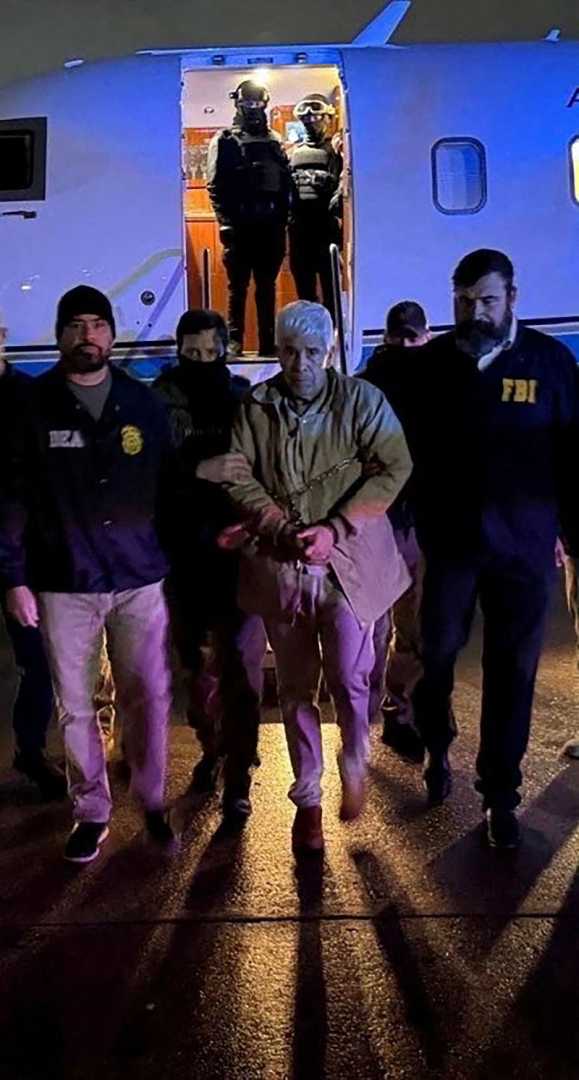News
Mexico Extradites 26 Cartel Leaders Amid US Pressure

Mexico City, Mexico
Mexico has extradited 26 high-ranking cartel leaders to the United States on Tuesday, marking a significant move amid ongoing pressure from U.S. authorities. This latest transfer includes key figures linked to notorious criminal organizations, as American officials intensify efforts to combat drug trafficking across the border.
Among those transferred is Abigael González Valencia, a leader of the “Los Cuinis” cartel, which is closely associated with the Jalisco New Generation Cartel (CJNG). Another notable figure, Roberto Salazar, faces accusations related to the 2008 killing of a Los Angeles County sheriff’s deputy.
The Mexican Attorney General’s Office confirmed the transfer, stating it was executed following a guarantee from the U.S. Justice Department that the death penalty would not be sought for any of the defendants. The handover represents the second such operation in recent months, reinforcing the U.S. administration’s strategy to dismantle drug trafficking networks.
In a statement, Attorney General Pam Bondi emphasized the significance of the extradition. “These 26 individuals have played roles in bringing violence and drugs to American shores. Under this Department of Justice, they will face severe consequences for their actions,” she stated. The recent extraditions follow a previous handover of 29 cartel members, including notorious drug lord Rafael Caro Quintero, in February.
U.S. officials have highlighted their commitment to addressing drug-related crime, with the Trump administration designating several Mexican cartels, including CJNG, as foreign terrorist organizations. Abigael González Valencia, who was apprehended in 2015 and has resisted extradition since, has familial ties to CJNG leader Nemesio Rubén “El Mencho” Oseguera Cervantes, a primary target for U.S. law enforcement.
U.S. Ambassador Ronald Johnson commented on the extraditions, noting, “This transfer is yet another example of what is possible when two governments stand united against violence and impunity.” As both countries continue their partnership, the focus remains on enhancing border security and further reducing the influence of criminal enterprises.
Additionally, discussions around tariffs between the U.S. and Mexico have played a role in fostering cooperation on security issues, with President Trump previously delaying potential tariff increases to allow for negotiations. Mexican President Claudia Sheinbaum has expressed a willingness to collaborate with the U.S. on these matters while maintaining Mexico’s sovereignty.












